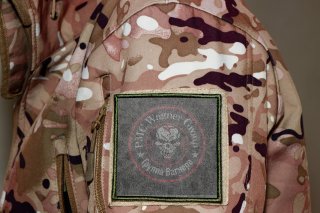How Wagner Group’s Mutiny Is Affecting Cuba
Recent reports of Cuban soldiers being drafted into the Ukrainian war effort highlight how Moscow is trying to fill the gap left behind by Wagner.
Madrid-based Prisoners Defenders, an NGO focused on Cuban human rights, reported that the Cuban and Russian governments signed an agreement in which Cuba would send soldiers to join the war in Ukraine. Such a development raises many important questions.
The Wagner Group’s dramatic failed mutiny displayed something the Kremlin knew long ago: the group, including its leader, Yevgeny Prighozin, has become a problem for Russia, particularly on the Ukrainian front.
The group had little military training and served as cannon fodder in the war. Thousands of its fighters fell in battle. Wagner was convenient to Russia, as many of its recruits were criminals recruited out of Russian prisons. In other words, they were soldiers whose lives were expendable. Moreover, using these Wagnerites in lieu of formal soldiers helped prevent a crisis of internal legitimacy in Russia.
Likewise, Wagner has played an essential role in various parts of the world, where its operations are tied to the Russian military and intelligence community. The group has provided security services, paramilitary assistance, and launched disinformation campaigns for regimes and political organizations in Sudan, the Central African Republic, Mozambique, Mali, Libya, and particularly Syria.
The group’s usefulness explains Russian president Vladimir Putin’s restraint towards Prighozin, who has been a harsh critic of the Russian military establishment and, more ominously to Putin, the rationale for the war in Ukraine itself.
As Prighozin’s hostility towards the military increased, the Putin regime sought alternatives to Wagner, which became more of a threat than an asset. The Russian Ministry of Defence planned to disband Wagner by July 1.
It is again this background that we can understand Russia's recruitment of Cuban soldiers.
According to Prisoners Defenders, Russia would pay every soldier $2,000 monthly, but the Cuban government would take 75 to 95 percent of such income. The report also claims that these soldiers have no choice but to join Russian troops. Otherwise, they would be subjected to retaliation and punishment.
This is not the first time Cuban soldiers have been deployed abroad in such a manner; they have been involved in wars in Angola, Ethiopia, Congo, Algeria, Iraq, and Syria. In Africa alone, Cuba is estimated to have lost 5,000 soldiers.
It is reasonable to assume that Cuban casualties will be significantly higher in the current war, as they are likely to have the same status as Wagner’s recruited prisoners.
The Cuban government would benefit economically from such a deal, and the Russians would begin to reduce their dependence on the Wagner Group.
In addition, it would presumably strengthen the alliance between Russia and left-wing Latin American regimes, such as Nicolas Maduro’s Venezuela, Daniel Ortega’s Nicaragua, and Diaz Cannel’s Cuba, which supported Putin during the Wagner rebellion.
A strategic alliance exists between Russia and illiberal left-wing regimes in Latin America. Russia has also deployed military equipment, troops, and mercenaries to Venezuela, including members of Wagner. It has deployed S-300 air defense systems and provided hundreds of military advisors. Russia has also sent Tupolev Tu-160 nuclear bombers to Venezuela and Nicaragua. In Nicaragua, the Ortega regime authorized 180–230 Russian troops, aircraft, ships, and weapons to operate on its soil. Likewise, Russian troops have been trained in Nicaragua and Venezuela.
It only makes sense then that, as part of this alliance, Putin would try to offer similar deals to Maduro and Ortega to recruit more soldiers.
Putin’s stubbornness is not likely to lead to an end of the conflict any time soon. Casualties will multiply, and increasingly authoritarian Latin American regimes might sacrifice their sons to a senseless war and indefinitely prolong it.
Luis Fleischman, PhD, is co-founder of the Palm Beach Center for Democracy & Policy Research, professor of Social Sciences at Palm Beach State College, and the author of the book Latin American in the Post-Chavez Era: A Threat to U.S. Security.

